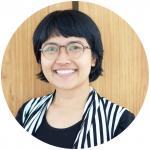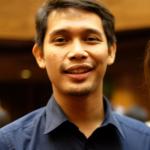The 4th Urban Social Forum (USF) was held on Saturday, 3rd of December 2016 in Semarang, Indonesia. It is an annual event, which is organized collectively by Indonesian civil society organizations, including universities, NGOs, community leaders and activists, in partnership with Kota Kita.
Almost one thousand people attended this forum out of the 1,200 who registered online. As an event that seeks to promote engagement in improving urban conditions, USF is designed as a public, democratic, and inclusive space for discussion and formulation of alternative and progressive ideas for cities.
Under the slogan “Another City is Possible!”, the event promotes the idea of the need for new and alternative models of urban development that promote social justice, equity, sustainability, and citizen participation. In its fourth year, USF had strong representation from the younger generation, the disabled community, women, urban poor, sexual minorities, and civil society. This enables USF to bring socially marginalized urban issues to public discussion and support efforts to raise awareness of the issues around them.
Through a diverse series of panels, the discussions encouraged participants to think more and more about how to ensure the city becomes a place which upholds democracy, social justice, and sustainability.
Ahmad Rifai from Kota Kita emphasized, “Cities should be inclusive and resilient. Cities should be prepared to overcome many risks in the future. Not only cities as a physical space, but also the citizens, and not only the marginal, but inclusive for everyone with no exception.”
Prior to that, Urip Sihabudin, Head of Central Java Development Planning Agency, speaking on behalf of Central Java Governor, said “Cities should be hospitable to anyone. This can be achieved by having a good spatial and development plan with correct implementation.”
He also added, “To be inclusive, deliberation and consensus have to be part of procedure that should not be missed in development process”.
From the discussion, there is a lesson learned that the consensus itself should result from both participation from the bottom and affirmation from above to create legitimation.
Though it has already been stated that inclusivity is not only for the marginal, but the urgency of promoting inclusivity as a consideration in the development process comes from the absence of involvement to particular stakeholder groups in the city.
Risnawati Utami from Ohana Indonesia (an organization that strengthens social justice and social welfare for Indonesians with disabilities), gave an example that raised our awareness on inclusiveness, “In the future, there will be a trend where the population that is elderly will be increasing. There are many specific needs for this group that should be accommodated by the city. If the city fails to meet these needs, there is the potential for there to be many people under stress in our surroundings.”
This illustration becomes an argument on the importance of involving particular groups in discussions for development planning so that a city can provide what its citizens need to live well.
One of panel sessions at the event entitled ‘Future Challenges of Eastern Indonesian Cities’, may have expanded the notion of inclusiveness. Inclusiveness is not only people-based, but also spatial-based. Despite acknowledgement by some national programs of the need to reduce regional disparity, this panel indicated that the imbalance in economic development between western and eastern part of Indonesia is still persistent. The involvement of local players in the development of urban economies is less substantial, while most local policy makers are deceived by the idea of urban modernization.
Drawing from his study on the City of Kupang in East Nusa Tenggara, one of the panelists, Wilson Therik, mentioned that local policy makers in Eastern Indonesia have failed to distinguish between “simbol ekonomi - the symbol of economy” and “ekonomi simbol - the economy symbols”. The former has been over emphasized and has left behind the later. Although more hotels and shopping malls (symbols of economy) have been built in Kupang, they are not helpful to the alleviation of poverty and to the creation of better employment opportunities because efforts to extend the value chains of local commodities (the economy symbols) are absent. The major portion of investments and inputs for running these symbols of economy are mainly supplied from Java. The panel also highlighted that the economy of scale to promote local-based industries has became a serious challenge in Eastern Indonesian cities.
As for bigger Eastern Indonesian cities, this panel was concerned with the growing pressure within the cities due to rapid urbanization. Edy Ariadi, from KUPAS NGO, argued on this panel that rapid urban growth in Makassar has left a significant portion of urban residents living without proper access to roads, water, sanitation, housing and jobs. Residents living in this area have established their own informal system that is often unrecognized and to some extent has caused particular groups in this society to be socially vulnerable, such as to human trafficking.
Another interesting panel was moderated by Dr. Pandawangi from the Asia research Institute NUS which scrutinized the myths of coastal reclamation. This panel dims unfair outcomes of ongoing coastal reclamation in Jakarta’s coast. While estate developers are projected to gain massive economic benefits from the project, local communities and fishers along Jakarta’s coast have already felt the gloomy impact of the on-going project on their livelihoods. Lack of transparency in government-business relations due to the exclusion of affected community groups in decision-making processes needs solutions, said Tigor Hutapea, from Jakarta Legal Aid Institute, a representative of anti-reclamation coalition. However, the community itself could be a solution says Wayan Suardana. He gave example of the struggle of ForBALI (Bali Tolak Reklamasi) movement to save Benoa Bay in Bali.
During the one-day forum and its 30 available panels, there were numerous discussions on many topics pertaining to urban issues, from climate change, women and children, infrastructure, economic development, transportation, waste management, and many others. Even though USF 2016 has managed to feature many panels with varying topics, there will always be further discussion in the future to explore similar topics or new emerging issues. Looking ahead at the participants’ composition, it will be good to have more participation from government representatives not only as speakers, but also as participants to listen and to engage in a meaningful discussion with community.
If authors could relate this event back to ACCCRN’s idea on shared learning dialogues (SLDs), USF may be interpreted as SLD on a massive scale. It provides a democratic space for communities to share information, learn from best practices, to inspire each other, and, most importantly, to build networks for further actions.
As part of the closing plenary session as evening approached, John Taylor from Kota Kita offered interesting insights to the USF participants sitting in the hall.
“Cities are not made by government, the private sector, or developers alone. They are made by everyone. We think that some problems are not our problems, and we think we cannot do something to make a change. If we don’t think that another city is possible, we will be stuck with our situation right now. We should think of an alternative. What else—what can we do to make changes?”
---
Rukuh Setiadi, Senior Lecturer in Department of Urban and Regional Planning, Diponegoro University (UNDIP), Indonesia
Nyoman Prayoga, Member Relations Coordinator – ACCCRN Regional Network
* Mercy Corps Indonesia, through the ACCCRN Program in Indonesia, participated as a partner in the 4th Urban Social Forum. Mercy Corps Indonesia hosted a panel with the theme ‘Tackling Climate Change Impacts through Inclusive Approaches to Community Resilience’, inviting speakers from Semarang, Cirebon, and Bandar Lampung to showcase climate change adaptation practices that have been carried out by ACCCRN partners during the implementation its program in Indonesia.
0 comment(s)
Please Login/Register to write comment




